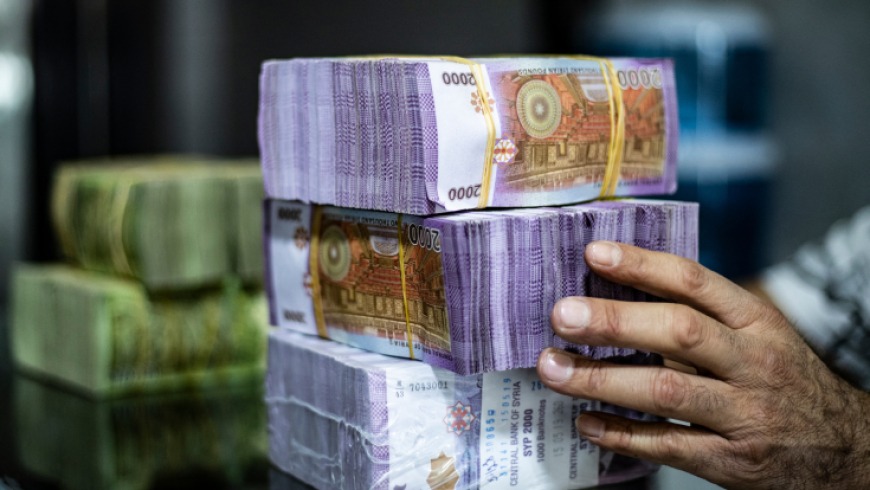With the approach of Eid al-Fitr, Syrians are once again grappling with the persistent issue of worn and damaged currency, notably impacting the flow of financial remittances. The deteriorating condition of the Syrian pound, especially in denominations of 2,000, 1,000, and 500, has become a stumbling block for citizens eagerly awaiting monetary transfers from abroad.
The recurrence of this problem is particularly evident in regions under government control, where the spike in remittance transactions has led some residents to defer their money collection, unwilling to accept outdated and deteriorated currency bundles.
The Hidden War on Women: Trafficking and Exploitation Surge in Syria
For instance, Umm Masoud, an elderly woman, had to postpone the receipt of her monthly remittance to avoid the cumbersome bundles of aged notes typically dispensed at the start of the month. The physical challenge of transporting large sums in such unwieldy denominations has become a practical concern for many, particularly the elderly.
Moreover, the integrity of the currency itself has come under question, with reports of damaged and improperly assembled banknotes becoming increasingly common. Consumers like Abu Ayman express frustration over receiving banknotes that are either pieced together from disparate parts or are missing corners, complicating transactions and leading to discrepancies in counting.
Retailers, too, face hurdles. Youssef, a clothing store owner, notes the difficulty in handling large amounts of these old notes, especially at the beginning of the month. The cumbersome process of counting has led some to humorously suggest that weighing money might be more efficient than counting it, a testament to the absurdity of the situation.
The reluctance to accept smaller denominations stems from their physical bulk and the impracticality of their use in significant transactions, pushing many to prefer newer, higher-value notes, which are in short supply. This scarcity has inadvertently fostered a market for money-counting devices among merchants, a workaround to manage the influx of deteriorating currency.
The current state of the Syrian pound, marred by rapid devaluation and soaring inflation, underscores the urgency for systemic solutions to restore currency viability and ensure the smooth facilitation of financial transactions, particularly during significant cultural and religious festivities.
This article was translated and edited by The Syrian Observer. The Syrian Observer has not verified the content of this story. Responsibility for the information and views set out in this article lies entirely with the author.


